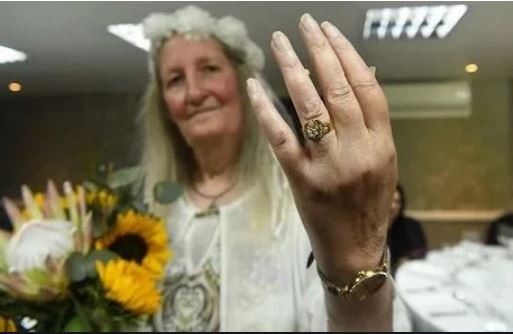Bamako – Thirty-eight people were killed and many others wounded in attacks on two ethnic Dogon villages in central Mali, the government said on Tuesday, in the latest in a cycle of violence in the volatile Sahel country.
No group immediately claimed responsibility for Monday’s attacks, but Mali has seen a spate of massacres this year between ethnic Dogon and Fulani communities.
“The terrorist attacks on Monday evening targeted the villages of Gangafani and Yoro… not far from the border with Burkina Faso. The official provisional toll is 38 dead and numerous people wounded,” the Malian government said in a statement.
“Defence and security forces have been dispatched to the location to protect the population and their property and to track down the assailants of these attacks,” the statement added, revising upwards an earlier toll of 14 dead.
Mali was gripped by terrorist conflicts for decades. More than 100,000 people fled to neighboring countries. The 2015 peace treaty led many of them to return. But religious extremists still govern many aspects of everyday life – even in schools.
Deadly floods ravage Mali, with the capital Bamako hit hard. Flooding is common in West African nation, located in the semi-desert Sahel region.
Hostages pay tribute to French soldiers who died to save them
France says their captors were terrorists who planned to hand them over to an al Qaeda affiliate in Mali.
An African Journey With Jonathan Dimbleby – Episode 1
Jonathan Dimbleby starts his African journey in the capital of Mali, Bamako.
Mali government resigns after ethnic killings
Mali’s prime minister and his entire government resigned on Thursday after legislators discussed bringing a motion of no confidence because of the massacre and a failure to disarm militias or beat back militants.
French, Mali troops kill, capture 30 jihadists in African Sahel
Troops from France’s 126th regiment in Briva-la-Gaillarde “killed or captured 30 jihadists” during a four-month tour of duty in central and eastern Mali as part of Operation Barkhane, the French-led anti-insurgent offensive launched in 2014 aimed …
‘Operation Barkhane’ thwarting “terrorists” in the Sahel desert
A new French military base is under construction in east-central Mali. “These border areas are obviously the places most sought after by terrorists to carry out their actions,” said General Frederic Blachon, commander of Operation Barkhane, France…
At least 160 killed in Mali massacre
Gunmen massacred civilians in Fulani villages in central Mali, killing at least 160 people, including dozens of children. #Mali #Fulanis #Dogons
Scores killed amid an upsurge in ethnic and jihadist violence in Mali
Gunmen killed at least 134 people in central Mali on Saturday amid an upsurge in ethnic and jihadist violence.
United Nations says Mauritania urgently needs funds to deal with ongoing refugee crisis
The United Nations says Mauritania in northwest Africa urgently needs funds to deal with a growing refugee crisis. Thousands of people are arriving from neighbouring Mali to escape an extreme interpretation of Islam and inter-ethnic violence.
Malian President Ibrahim Boubacar Keita has won re-election with 67 percent of the vote in a run-off against opposition rival Soumaila Cisse. The victory hands Keita a second term in the mostly desert West African country where militant violence a…
Polls closed in Mali’s run-off presidential election on Sunday (August 12) as security sources confirmed that the chief of one polling station was killed by armed assailants in the Timbuktu region.
The impact of climate change is painfully apparent in Mali. Prolonged drought has had a devastating effect, and is forcing farmers to think of new solutions.
Canadian troops in Mali weigh in on peacekeeping mission
Defence chief Gen. Jonathan Vance says Canada’s contribution to a UN peacekeeping mission in Mali will be “first class.” More troops and the first Canadian helicopter are set to arrive this week after an advance group landed in June.
Earlier this month, a massacre on another Dogon village, Sobane Da, killed 35 people, stirring fears of tit-for-tat attacks in a region with an ethnic patchwork.
“This time is the same as Sobane Da: People and animals targeted,” said Adama Dionko, a spokesperson for Mali’s Dogon association.
“We demand the state give us more security.”
Mali’s armed forces also reported, on Twitter, that an army patrol on Tuesday was ambushed at Gossi in the north of the country and suffered both “human and material losses”.
President Ibrahim Boubacar Keita has appealed for an end to the revenge attacks after he visited the site of the Sobane Da massacre.
But despite military help from France and the United Nations, Mali’s government is struggling to calm violence that began in the north of the country in 2012, sparked by radical Islamist and Tuareg militias.
Earlier this year, in the bloodiest raid, 160 Fulani were killed in an attack on a village by suspected militiamen from a rival ethnic group.
Ethnic violence in central Mali surged after a predominantly Fulani jihadist group led by preacher Amadou Koufa emerged in 2015.
The UN peacekeeping mission in Mali, MINUSMA, said in May it had recorded nearly 500 deaths in attacks on Fulanis in the central regions of Mopti and Segou since January 2018.
Armed Fulanis caused 63 deaths among civilians in the Mopti region over the same period, it said.
The Fulani are primarily cattle breeders and traders, while the Bambara and Dogon ethic groups are traditionally sedentary farmers.
Unrest in the central region coincides with an ongoing jihadist campaign that the Mali government is struggling to contain.


.jpeg&w=60&q=100&h=60)









